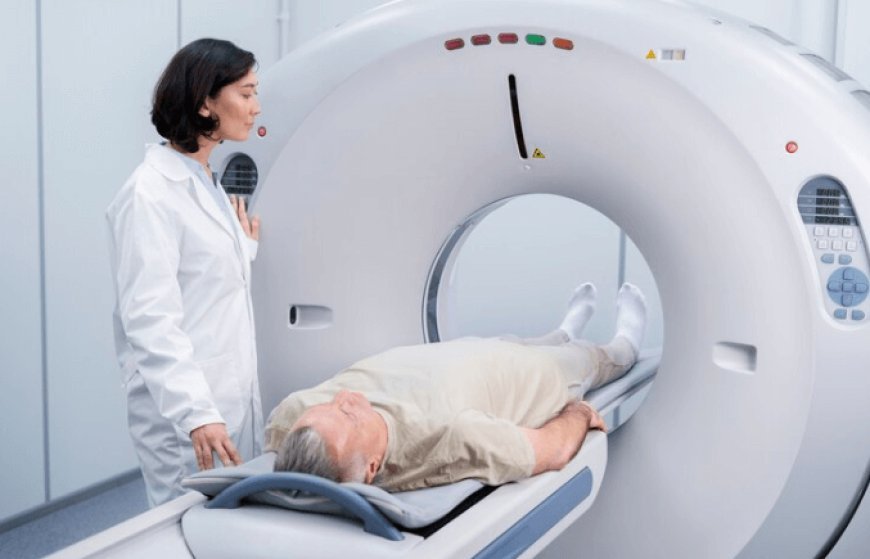Why Your Doctor Might Recommend a PET CT Scan

Imagine this: You have been feeling unwell for some time, and despite several tests, your doctor still has no clear answer. Then they suggest a PET CT scan. You may wonder, “Why do I need this test?” or “Is it really necessary?” Let us explain this in simple terms.
What Is a PET CT Scan?
A PET CT scan is a powerful imaging test that combines two technologies—positron emission tomography (PET) and computed tomography (CT). This scan helps doctors see how your organs and tissues are working, not just how they look. It's commonly used to detect cancer, heart disease, and brain disorders.
Real-Life Example: How PET CT Saved Rahul’s Life
Rahul, a 45-year-old businessman, complained of persistent chest pain and fatigue. Standard tests showed nothing unusual. His doctor suspected there was an underlying problem, so he recommended a PET CT scan. The results showed he had early-stage lung cancer – which can't be seen on a regular CT scan. Since the disease was caught early, Rahul began treatment immediately and is now doing well.
Why Might Your Doctor Recommend a PET CT Scan?
Doctors do not recommend this test lightly – it is usually recommended in serious medical conditions where detailed imaging is necessary for diagnosis, treatment planning, or monitoring. Below are some of the key reasons why a doctor may suggest a PET CT scan.
1. Cancer Diagnosis and Staging
One of the most common reasons a PET CT scan is recommended is to diagnose and stage cancer. If a biopsy or previous imaging tests (such as X-rays or MRIs) indicate the possibility of cancer, a PET CT scan can confirm its presence. Additionally, it helps doctors determine:
-
The exact location of cancerous cells.
-
Whether the cancer has spread (metastasized) to other parts of the body.
-
The stage of cancer, which is critical in creating an effective treatment plan.
2. Checking Treatment Effectiveness
For patients undergoing chemotherapy, radiation therapy, or immunotherapy, doctors use PET CT scans to evaluate the effectiveness of treatment. The scan can show:
-
Whether the tumor is shrinking or remains the same.
-
If new cancerous growths have appeared.
-
Whether the treatment needs to be adjusted.
3. Detecting Cancer Recurrence
Even after successful cancer treatment, there is always a risk of recurrence. Regular PET CT scans help monitor the patient's health and ensure that the cancer has not returned. If a suspicious area appears, early detection allows for timely intervention.
4. Heart Conditions
A PET CT scan is also used to assess heart health, particularly in patients with suspected or known coronary artery disease (CAD). The scan helps:
-
Measure blood flow to the heart muscles.
-
Identify areas with poor oxygen supply.
-
Determine if angioplasty or bypass surgery is necessary.
5. Brain Disorders
Doctors may recommend a PET CT scan for evaluating various neurological conditions, such as:
-
Alzheimer’s Disease – Helps detect early signs of brain degeneration.
-
Epilepsy – Identifies the areas of the brain responsible for seizures.
-
Severe Depression or Psychiatric Disorders – Assesses brain activity patterns to understand mental health conditions.
Is a PET CT Scan Expensive?
One major concern people have is the PET CT scan cost. While prices vary depending on location and medical facility, it is important to remember that this test provides important information that other scans may not. Some insurance plans cover the cost, so check with your provider beforehand.
Practical Advice: What to Expect During the Scan
If your doctor has recommended a PET CT scan, here’s what you should know:
-
Fasting is required: You may be asked not to eat for several hours before the scan.
-
A special dye will be used: This helps highlight areas of concern in your body.
-
The process takes about 30–60 minutes: It’s painless, though you might have to stay still for some time.
-
Minimal side effects: Some people feel a bit warm or tingly due to the injected dye, but it’s temporary.
Final Thoughts
A PET CT scan is a valuable tool that can make a difference in the diagnosis and treatment of serious conditions. If your doctor recommends it, they probably have a good reason. Instead of worrying about the cost of a PET CT scan, focus on the potential health benefits it offers. As in Rahul's case, early detection can be lifesaving.
What's Your Reaction?




































































